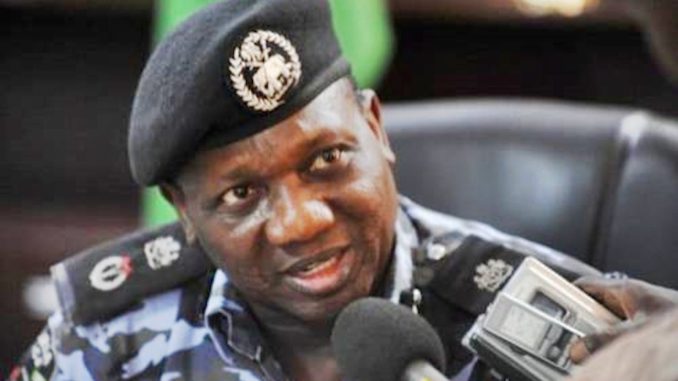
A situation in which Nigeria’s President and Commander-in-Chief of the Armed Forces, Muhammadu Leko Buhari gave a directive to the Inspector-General of Police (IGP), Ibrahim Idris who disobeyed same and did just what he willed, speaks volumes about the strange and confounding ways that this government functions, if indeed, as many would say, it functions at all.
On a belated visit to a much-ravaged, perpetually mourning Benue State, the president was informed by a concerned citizen that his chief of police had failed to heed a presidential directive two months earlier, to re-locate to the state and take personal charge of the deteriorating security situation.
Said Buhari: ‘I did not know that the IG did not stay in the state. I am getting to know this at this meeting. I am quite surprised’.
Many things are just so wrong with the behaviour of the IG Idris, the reaction of President Buhari, and one or two other officials in between.
These, altogether, clearly advertise a loss of grip, at the highest level, on the exercise of authority and on the structure and machinery of power.
If this is not dereliction in governance at the highest level, it is hard to describe it any other way.
The IGP, as the head of the primary internal security organization to maintain and secure public safety and public order, has the indubitable duty to ensure this to the best of his professional competence, capability, and the resources available to him.
He is constitutionally bound to obey lawful directives by the president.
Section 215(3) of the extant constitution (as amended) states that ‘The President or such other Minister of the Federation as he may authorize in that behalf, may give the Inspector-General of Police such lawful directions with respect to the maintenance and securing of public safety and public order as he may consider necessary, and the Inspector-General of Police shall comply with those directions, or cause them to be complied with’.
At one level, it is bad enough that the IGP would be so bereft of initiative as to wait for an assumedly very busy president to direct him on the Benue State security situation.
The destruction of lives and property is so widespread as to cast doubt on the capability of the Buhari government to meet its primary constitutional obligation as stipulated in Section 14(2)(b) of the constitution.
Pray, why should the president, with so much to worry about have to also micro-manage his subordinates in the performance of their duties? Why?
Beside this, it stands to reason that the IGP disobeying, for reasons best known to him, the directive of the president is a constitutional offence as well as a breach of public service rules.
Both offences deserve appropriately severe sanctions and for the additional reason that they set bad examples at such a high level of the service.
At another level, because matters of serious internal insecurity fall respectively within their purview, the National Security Adviser (NSA) and the Minister of Interior must bear some blame for appearing to do nothing while the IGP disobeyed the president.
If the overall effectiveness of government was a paramount consideration across all its organs, it would not be unreasonable to expect that formally or informally, these arms of the executive would ensure that the IGP acted right on this matter.
It is normal that a nation’s chief executive is availed first thing in the day of up-to-date reports on two key issues that affect the polity namely: security and the state of the country’s finance. In these especially troubled times, the security report must be up-to-the-minute.
How come that for two months, Buhari was not aware that his IGP was absent from his assigned duty post? Indeed, the exceptionally challenging and widening insecurity in the land necessitates the establishment of a ‘Situation Room’ that receives, collates and analyses security reports from across the land for onward transmission to the president and his top aides.
From what location did the IGP file his reports on Benue State and how come no one detected that he was not where he was supposed to be?
The many questions thrown up by the Ibrahim Idris’ defiance of Buhari’s directive have given ammunition to President Buhari’s political and non-political opponents.
The chairman of the major opposition party, Peoples’ Democratic Party (PDP) maintained that “Buhari is not in charge of anything’; the civil society group Committee for the Defense of Human Rights (CDHR) saw in it all ‘ a dysfunctional government from the highest level of operation…’
As rightly stated by the National Conscience Party (NCP), if the IGP failed to act according to the president’s instruction, ‘it simply means he is undermining the latter’s authority and as president, [he] should know what to do’.
This is Buhari’s government, and he must know that for the good or for ill, the buck stops at his desk.
I-G Ibrahim Idris has lately said and done a number of things unbecoming of his profession and his high office. To defy his boss is, besides the legal implication, a huge disrespect for the highest office in the land.
This, certainly, is one Inspector General of Police Nigeria can do without.
END

Be the first to comment